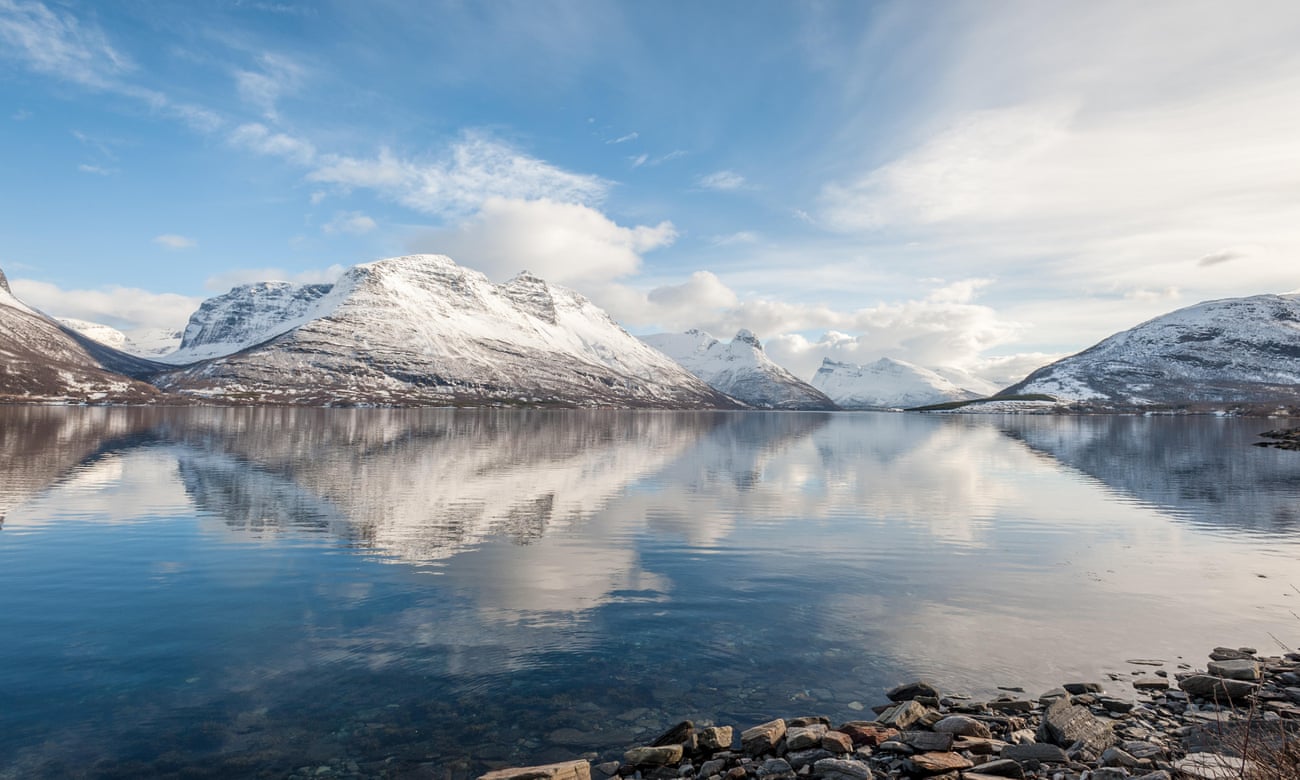I'm on top of the world, in all senses of the term: we're 500 miles inside the Arctic Circle in Norway's Lyngen Alps and I'm buzzing at having reached the summit of Riššavárri, after a 31/2-hour hike.
Jagged white peaks rise starkly from snaking, deep blue fjords, the sun is shining, the light's amazing – and there's no one here but me and my guide, Mikal Nerberg. With more than 60 summits over 1,000 metres, the Lyngen Alps have a quasi-mythical status among hardcore skiers. It's a purely touring destination: there are no ski lifts, so any mountain you want to ride down you have to hike up, using “skins” on your skis for grip. With ski fans increasingly wanting a fitness break, rather than just boozy lunches and downhill meanders, touring is a growth area.
The Lyngen Alps is where alpine guides come on holiday once their European season finishes, and where they bring their best and favourite guests. I'm here in early April but the season runs until June, when there's skiing in the midnight sun.
We planned our route the day before, poring over a giant map, with Mikal pointing out the many peaks at our disposal. Riššavárri, at 1,251 metres, seems a good entry-level option. The temperature hasn't fluctuated dramatically lately and it hasn't snowed for a week so the snow pack should be stable, though as this is the high Arctic the weather can suddenly change. “This is more like a mountain expedition than you might expect,” said Mikal.
Instead of getting a resort bus or cable car to our starting point, we take a ferry across the fjord from Lyngseidet to Olderdalen. Our hike begins at sea level, rising up through a forest of elder and silver birch, the trees bowed under the weight of the snow. Mikal is on touring skis, while I'm on a splitboard - a snowboard that splits in two so it can be used like touring skis. The way isn't too steep, but Mikal insists on a slow pace and makes us stop for snacks every hour to keep energy levels up.
Coming out of the woods we see our target summit, high in the sky, and still another 1,000 metres away. The climb quickly gets steeper but at the hour-two stop I still feel OK. As we reach hour three, however, I begin to wonder if I'll ever make it to the top.
The silver lining is the view, which as we rise becomes an increasingly amazing distraction. For the last half-hour I really have to dig in, hypnotised by Mikal's steps ahead of me but at the top the feeling of elation is intense.
I put my board together, while Mikal checks the snow to see which line would be our best descent. We set off, navigate some juddering wind-ruined snow then find a pocket of lovely soft pillow-like powder. Further down we ride super-fast spring slush, passing giant boulders of icy snow, and then cut into the forest we climbed through earlier, dodging the tightly packed tree trunks and stumps as if in a computer game. We emerge into a snowfield and ride down to the fjord, a complete run from summit to sea.
